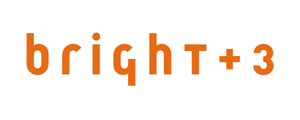And how to deliver what people need and grow the greatest resource: trust.
Hello! Thanks for reading Future Community. Welcome to new folks from Seattle, DC, France, Colorado and elsewhere!
Given (waves hands) all that's happening, how are you and what are you working on? Please reach out if you want to talk about delivering your useful content in ways that help people and build trust (which is what we're talking about below).
Last week I wrote about how critical it is to get people useful info about what's happening right now.
I'd say "start a newsletter today" if a typical nonprofit or news org asked me about the one thing they could do right now to get that info out to supporters and readers.
For most this is some kind of written newsletter. But if your audience is on TikTok or Reels and you're ok with a video newsletter then by all means that's what this is about. You could use the same base content for both and "cross-post" but don't want to blow anyone's mind.
Vox's The Logoff is a great example of filling an info void with an ad-hoc newsletter. It's written by Patrick Reis every weekday. Instead of covering "everything" that's going on with Trump, Musk and the government, Reis covers one topic. One day it was sending people to Guantánamo, another it was the Consumer Financial Protection Bureau, and another about Trump's proclaiming the US would take over Gaza. The emails aren't long (150-200 words), have a clear human voice, and even offers a palate cleanser at the end of each email (a good way of getting readers to regularly read to the end).
An organization that works on, say, clean energy or forests could whip up a newsletter that covers one key thing happening each day on their topic.
Narrowcast. Be the voice for that topic. Even if your list only grows to 1,000 people, you have incredible power if you can bring your expertise on the issue to the people most affected by the issue by producing the clearest storytelling about what's happening on that issue.
It doesn't need to be long, or perfect, or have the right images. But needs to be interesting, useful, have a voice.
Don't fret over platform choice or design. Best case? Load it up into what you're using for email now, use a simple template and start writing. Let me know if you must deliberate over platform and CRM pros and cons. I have something for that.
Promote it to the part of your list that's most engaged on the topic. Promote it on socials. Send it to some reporter contacts, legislators, community leaders and ask them to subscribe and share.
Go do it.
A moment to build trust. Step up with your communications.
The truth, even a generally accepted and moderately stable truth, won't be found in our current culture and politics. Questions, doubts, half-truths and outright lies float around the discourse. No amount of skilled journalism, on the ground creator videos, case studies, data or scientific reports can present a truth that cuts through the noise enough to build a shared narrative.
Trust is the informational currency of the present. If it weren't, would Trump (and myriad other politicians) work so hard to cast doubts on the legitimacy and trustworthiness of the opposition?
- Are you reliable and consistent?
- Do you tell a story we can understand?
- Do you somehow connect with me?
- Do you share my values?
- Do you do what you say you'll do?
Answers to these questions will determine if you and your communications build trust.
In theory, community, civic and advocacy organizations are well positioned to deliver information in a low trust environment. They are, after all, close to the community, share values with their supporters, and are skilled in the subject at hand.
Nonprofit organizations are trusted sources of information that should be critical to fighting attacks on government, science, public health, and more. They also have memberships and email lists. Nonprofits, regardless of focus, are a key to unlocking the door to thriving communities and healthy democracies.
Every organization should be turning hard to starboard (or port?). Reconfigure communications to deliver information the community needs today, tomorrow and the next day. Give people what they need to make sense of what's going on, take clear action, and work together.
Look, there is no better way to build trust than to know someone, work together, be there when they need you. Find ways to build these trust-building practices into your communications.
Bright Ideas: Reading and Resources
- New Media Mentors is training! Join The New Digital Best Practices: What every nonprofit or labor staffer needs to know about digital strategy today. It's delivered in three online sessions from March 5 to April 2. [via Elana Levin]
- Tenacious: Conversations With Red State Progressives is a new podcast hosted by Mimi Garcia. I'm excited by the first episode, a conversation with Seth Hutchinson who organizes for Communications Workers of America in Texas, Arkansas, Oklahoma, Missouri, and Kansas. [via Ellen Garcia]
- Have a climate story? Submit a proposal to the Climate Storytellers Summit. [via Joshua Low at Yale Program on Climate Change Information]
- Blue Lena shares insights from its year-end work on fundraising with news organizations. It's all about showing up for community. And, yes, you can ask monthly donors for more money.
- M+R shares insights from year-end fundraising results. Overall results were up a wee bit but email fundraising was flat. An election that sucked up all the juice and a bad calendar (Dec 31 on a Wednesday stinks) play a role. My take? The big orgs that raise the most money have huge obstacles to growth: they don't have good lists, content strategies or great work results to share. Rolling out a 10x match doesn't replace a year of forgettable messaging to people who don't remember they're subscribers.
- Crossing a line: Borders between one kind of life and another. Timothy Snyder with a reminder of what we stand to lose (and why we need to do the community work, the local news, the trust building so much better).
Future Community Jobs
A handful of the most recent roles you'll find on Future Community Jobs.
- Creative Director : Consumer Reports [Hybrid in New York City area]
- Editor-in-Chief : Berkeleyside [Berkeley or Oakland]
- Deputy Editor : Oaklandside [Oakland]
- Director of Campaigns and Partnerships : Rebuild Local News [Remote]
- Deputy Data Editor : ProPublica [New York City]
- Communications Specialist : SEIU 49 [Portland]
- Director of Communications : Jewish Council for Public Affairs [New York City or Washington, DC]
- Communications Director : Western States Center [Remote / Oregon, Washington, Idaho, Wyoming, Arizona preferred ]
- Chief Development Officer : Inside Climate News [Unspecified]
- Senior Development Writer, Institutional Giving : Earthjustice [San Francisco / Remote]
- Deputy Director of Development : The Marshall Project [Remote / New York City preferred]
- Senior Director of Analytics/Head of Analytics : Movement Labs [Remote]
- Narrative Change Researcher (part-time / contract) : Red Cypress [Remote]
Future Community is a product of Ted Fickes and Bright+3. Reply to this message or visit Bright+3 for more about our work.

